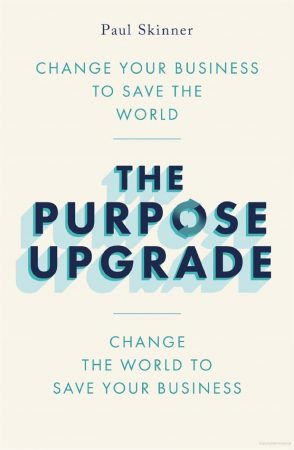The Purpose Upgrade, Paul Skinner (Robinson, £16.99)
This book opens with a powerful vignette from the life of UK entrepreneur Mick Jackson, who was climbing K2, the notoriously deadly Himalayan peak, when his Kashmiri sherpa suffered two collapsed lungs. Mountain rescue crews refused to fly out, as there was no money to be made from saving a mountain tribesman – leaving Jackson and his comrades to carry him down to safety.

They saved the man’s life and converted Jackson to socially conscious business; he founded the WildHearts Enterprise, which funds empowering projects around the world through the sale of office stationery.
This is an example of the ‘purpose upgrade’ that gives Paul Skinner his book title – “an approach to redirecting, protecting and increasing the value that an enterprise creates through intentional change” which aligns it with the wider world and the needs of its stakeholders. And with the world seemingly as imperilled as that sherpa, with governments around the world floundering in the face of climate change, pandemic, war and recession, Skinner thinks a purpose upgrade is a pressing need: we live in a time where businesses need to stop harming the world and start saving it.
Skinner offers some scope for optimism – he argues that “businesses can provide a powerful means to turn creativity into positive change” – but he is concerned that business too often drives harmful consumption instead of serving genuine need. In an attempt to remedy this, he’s written a sort of self-help book for businesses looking to rethink their place in the world.
He warns that models such as corporate social responsibility (CSR) and environmental and social governance (ESG) “fall short of giving leaders a toolkit for addressing their primary challenges in redirecting their core operations’. Businesses need to connect more with their widest range of stakeholders, he says. Inevitably this leads him to models such as the co-operative, along with other social enterprises and B Corps, as and option for more ethical and socially useful of doing business. Even then, purpose matters: he warns that “the adoption of these legal structures does not in itself guarantee that an enterprise is pursuing an optimal purpose through its core value creative processes.”
Furthermore, “a business may even end up achieving less by diluting its capabilities in pursuit of too broad a range of measures … instead of focusing on the issues where it can make the biggest difference through its own particular capabilities”.
But co-ops, done right, are effective change makers, he says – “a mechanism for people to support themselves and each other”. And goes on to suggest a range of measures to ensure this is done – in terms of upgrading strategy, operations, ownership, branding, structure and measures of success. These questions are of vital importance, he says.
“How will you change the world. How will you save your business?“